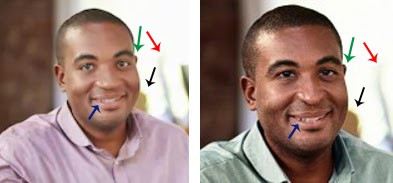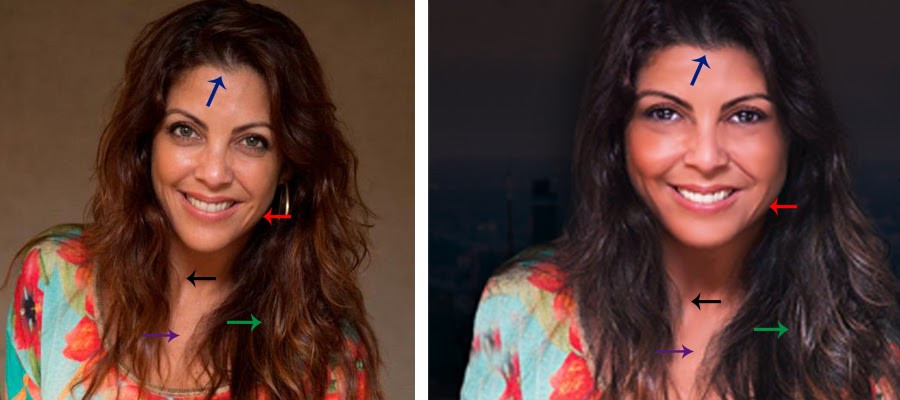Brazilian news website Jornal da Cidade Online, known for its pro-Bolsonaro stance, is facing serious accusations of employing fake profiles to launch attacks and spread disinformation against politicians, judges, and even ministers of the Supreme Federal Court (STF). Evidence suggests that the website, notorious for disseminating misleading content in favor of Jair Bolsonaro during the last elections, has been using fabricated identities for some of its contributors, raising concerns about journalistic ethics and the spread of misinformation.
One of the key indicators of these alleged fake identities revolves around two contributors, Amanda Acosta and Otto Dantas. Acosta is presented in her articles with a digitally altered photo of the writer Thalita Rebouças, while Dantas uses a stock photo from Shutterstock. Adding to the suspicion, both individuals have been named as defendants in legal processes related to their publications on Jornal da Cidade Online, but the Justice system has been unable to locate them to deliver notifications. Even their lawyer, Camila Rosa, who defends them in several lawsuits, admits to not knowing the whereabouts or even meeting Amanda Acosta and Otto Dantas.
José Tolentino, the editor of Jornal da Cidade Online, stated this Tuesday (July 2nd) that he does not personally know these two contributors. He claimed that he does not typically verify the biographies or photo authenticity of those who write for the site and declined to provide any evidence that could verify the identities of Acosta and Dantas. Emails sent by Aos Fatos, a fact-checking agency, to the email addresses provided on the website for Acosta and Dantas remained unanswered until the publication of their report. One email, requesting an interview, was even replied to on June 28th by Otto Dantas, who stated he was traveling and asked for a phone number to call. However, when asked if the conversation could be conducted via video call, he ceased to respond. Furthermore, searches conducted by Aos Fatos across social media platforms, phone directories, and other publications failed to yield any results confirming the existence of these two reporters from Jornal da Cidade Online.
Evidence of Fake Identities
The investigation by Aos Fatos revealed compelling visual evidence suggesting the use of fake photographs for Otto Dantas and Amanda Acosta’s profiles on Jornal da Cidade Online.
 Comparison of Otto Dantas' profile picture with a Shutterstock image, highlighting similarities in background, hair, lighting, and facial features.
Comparison of Otto Dantas' profile picture with a Shutterstock image, highlighting similarities in background, hair, lighting, and facial features.
Altered Photos. By comparing Otto Dantas’s profile picture on Jornal Da Cidade Online (above, right) with a Shutterstock stock image (left), striking similarities emerge. Identical background elements, including a blurred door, a wide window, and a decorative object, are visible. The positioning and partial visibility of a chair behind the person in both photos further strengthen the resemblance. Facial analysis reveals identical receding hairlines, a strong light reflection on the same point of the face, and similarly shaped ears. Even the lighting on the nostrils and cheekbones, and a slight gap in the teeth on the left side of the smile, are mirrored in both images. While minor differences like shirt color, nose curvature, and eye proximity exist, these discrepancies are easily achievable through basic image editing software, suggesting manipulation rather than distinct individuals.
 Comparison of Amanda Acosta's profile picture with a photo of writer Thalita Rebouças, showing identical clothing and similar facial features.
Comparison of Amanda Acosta's profile picture with a photo of writer Thalita Rebouças, showing identical clothing and similar facial features.
The comparison between Amanda Acosta’s photo (right) and that of children’s author Thalita Rebouças is even more telling, with an identical blouse pattern immediately noticeable. Further scrutiny reveals matching hair parting lines, similar light reflections on the nose and cheekbones, and identical smile lines below the mouth. The light intensely reflecting on the writer’s hair on the right side is also mirrored in Acosta’s photo, along with identical stray hairs over the collar. Similar to Otto Dantas’s image, Amanda Acosta’s photo appears to have been digitally altered, with changes in hair color, skin tone, face width, and eye size, further supporting the claim of manipulated identities.
When contacted by Aos Fatos, José Tolentino, the editor of Jornal da Cidade Online, claimed to be unaware of the alleged fake photos but failed to provide any evidence to the contrary or contact information for the two reporters. He admitted that his interaction with them is solely virtual, never personal or via video calls. Tolentino denied that they were fake profiles, taking responsibility for all content published on the site, stating, “Here at Jornal da Cidade Online, the responsibility is mine. I take responsibility.”
Legal Repercussions and Obstruction
Adding to the controversy, Jornal da Cidade Online and its editor are facing legal battles stemming from articles attributed to Amanda Acosta and Otto Dantas. Notably, Gilmar Mendes, a minister of the STF, has sued the website and the reporters following articles that implicated him and his wife, lawyer Guiomar Mendes, in accusations related to habeas corpus grants. In May 2017, Mendes filed a lawsuit for moral damages against Jornal da Cidade Online over three articles, signed by Otto Dantas, Amanda Acosta, and Helder Caldeira. These publications falsely alleged that Guiomar Mendes received fees for the release of Eike Batista, despite no evidence linking her to the case, even though she worked at the law firm representing the businessman.
According to Camila Rosa, the lawyer defending Jornal da Cidade Online, the lawsuit has been stalled in its initial stages due to the inability to locate Dantas and Acosta. While Caldeira and Tolentino were notified, the two reporters remain untraceable. When pressed by the Justice system to provide contact information, Tolentino only offered the professional email addresses listed on the Jornal da Cidade Online profiles. Furthermore, Jornal da Cidade Online is also facing five other lawsuits for moral damages filed by judges of the TJ-RJ (Court of Justice of Rio de Janeiro) due to an article by Amanda Acosta that named dozens of magistrates allegedly involved in influence peddling. Interestingly, despite being the author, Acosta is not named as a defendant in this case because, according to the judges’ lawyer, Fernando Orotavo Neto, she could not be located. The website has already lost two of these cases, ordered to pay significant sums to the judges involved.
Tolentino explicitly told Aos Fatos that he would not provide any personal information about the reporters, even their state of residence, stating, “I will not provide means for them to locate Amanda and Otto. If they locate them, great.” However, court records show that Tolentino provided conflicting information to a court officer in 2017, stating that Dantas, Acosta, and Caldeira resided in different states – Mato Grosso, Ceará, and Rio de Janeiro, respectively. While Helder Caldeira’s Facebook profile confirms his residence in Cuiabá (MT), the alleged locations of Dantas and Acosta remain unverified and questionable.
Background on Jornal da Cidade Online
Both Dantas and Acosta began publishing on Jornal da Cidade Online between 2016 and 2017. José Tolentino claimed not to recall their exact start dates, citing the website’s large number of approximately 50 contributors, most of whom are unpaid. He described the contributors as “professors, lawyers, journalists” who contribute to the site due to its growing credibility. Tolentino emphasized that Jornal da Cidade Online is based in Rio Grande do Sul and that he does not personally know most contributors, including the three authors of the articles about Minister Gilmar Mendes.
Regarding their writing styles, Acosta tends to adopt a more objective tone, while Dantas employs highly adjective-laden language and derogatory terms when referring to politicians and public figures. Notably, Acosta and Dantas, along with reporter Lívia Martins, are the only contributors with official Jornal da Cidade Online email addresses listed on their profiles. Their biographies are also standardized as “Article writer and reporter,” unlike other columnists. Furthermore, they are the only contributors among the approximately 50 to maintain official Facebook pages dedicated to Jornal da Cidade Online, exclusively sharing content from the website.
Jornal da Cidade Online has a history of publishing fake news and misinformation, with at least four instances fact-checked by Aos Fatos, including false claims about the Brazilian Army, electoral security, and political endorsements.
Update July 5th: Helder Caldeira clarified in an email to Aos Fatos that Jornal da Cidade Online had been republishing his public Facebook posts as articles without his direct submission. He stated that he has requested the website to cease this practice and remove his name from any columns implying contractual association. Caldeira also vehemently repudiated the dissemination of fake news and is seeking legal action to remove his name from the lawsuit filed by Minister Gilmar Mendes.
The accusations surrounding Jornal da Cidade Online‘s use of potentially fake profiles raise serious questions about accountability, transparency, and the ethical standards of online news platforms, especially in the context of politically charged environments and the fight against misinformation.

